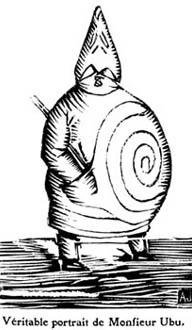User Login |
Rodrigo Toscano Performance ReviewToscano's rading from To Leveling Swerve was an increasingly layered impact of sound. His opening piece was, for the listener, more akin to experimental music than it was to a poetry performance. But these are not necessarily contradictory forces, the preface of sound before word braced us for the poetry to come. Ezra Pound would have been satisfied, writing that "music rots when it gets too far from the dance, [while] poetry atrophies when it gets too far from music." Toscano explores this intimacy between meaning, language and sound. Employing this emphasis on music and sound, we find that whatever ideas lay behind Toscano's first poem are experienced more as a sensation and feeling conveyed through sound than through any coherent expression of words. In the context of the whole performance, this piece was a perfect opener, indoctrinating the audience, preparing them for the unfamiliar use of word and voice that lay ahead. His second piece introduced more coherent strings of ideas, a political angle appeared, and here his vocal distortions became clearly motivated to enhance the meaning of the piece. Toscano seemed to pursue Pound's sense of melopoeic meaning: "to charge language with meaning to the utmost possible degree, we have, [as one of three means,] inducing the emotional correlations by the sounds and rhythm of the speech." The heavy emphasis on sound in his first piece protects us from being overwhelmed or distracted when we encounter the second, we've been prepared, warned. His melopoeic manipulations jar the audience only enough to make us second guess our first impressions, simply encouraging our engangement in the performance. The performance progresses in a consistent pattern. The element of coherent ideas increases as we go along, while varied techniques and experiments with sound continue to be introduced and explored, keeping the audience on their toes, never letting us become familiarized with the unfamiliar from one piece to the next. Barbara Guest, describing the intent of poetry, invites just such tactics of unfamiliarity, writing that "there will always be poetry, in its search for a language, a desire for the liberation of the imagination." Toscano takes on this desire for liberating imagination as deeply in his search for sound as he does in his search for language. His third poem encorporated, along with English, Spanish and Spanglish with increased political emphasis. He uses what he knows, what we know, and shocks us with it. His ability to turn familiar words and ideas into an unexpected sequence of images and sounds keeps Toscano's audience engaged throughout his reading. The words may not all have a clear and coherent significance, but they weren't wasted, they were given their own sense of importance, like Pound wrote, "the secret of popular writing is never to put more on a given page than the common reader can lap off it with no strain WHATSOEVER on his habitually slack attention." By the end, whether or not you have understood what Toscano 'means,' you have definitely been paying attention.
categories [ Poetry Reviews ]
login or register to post comments | printer friendly version
|
